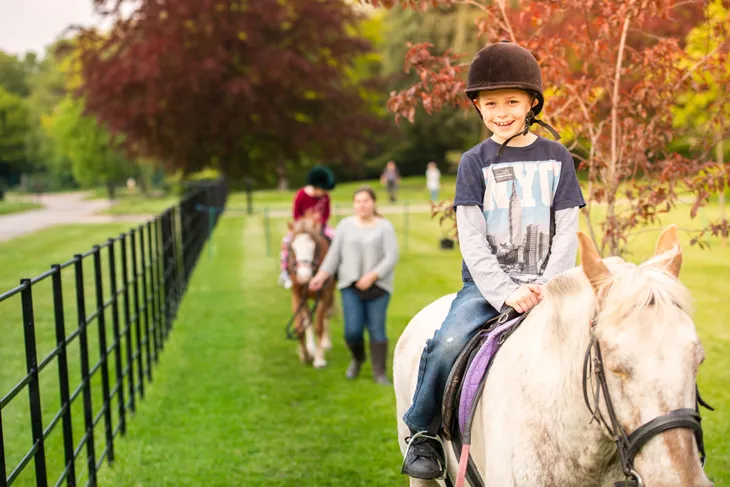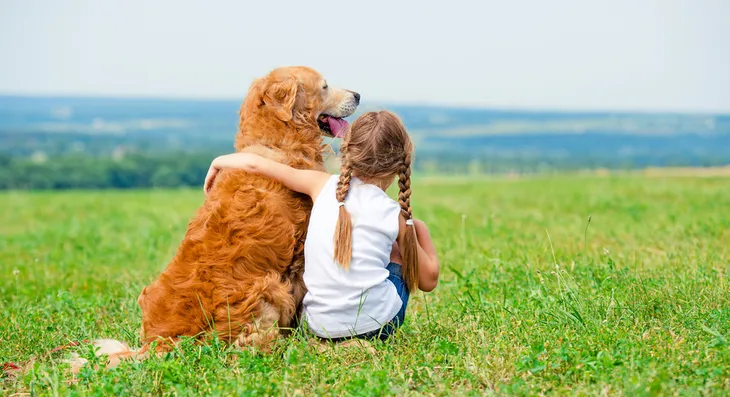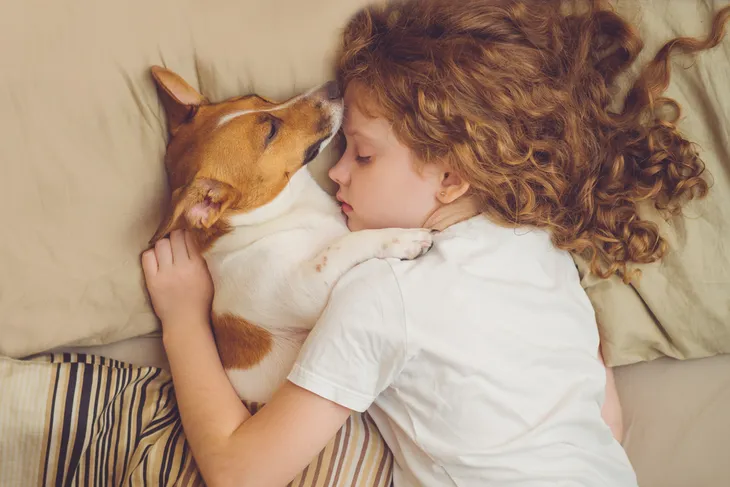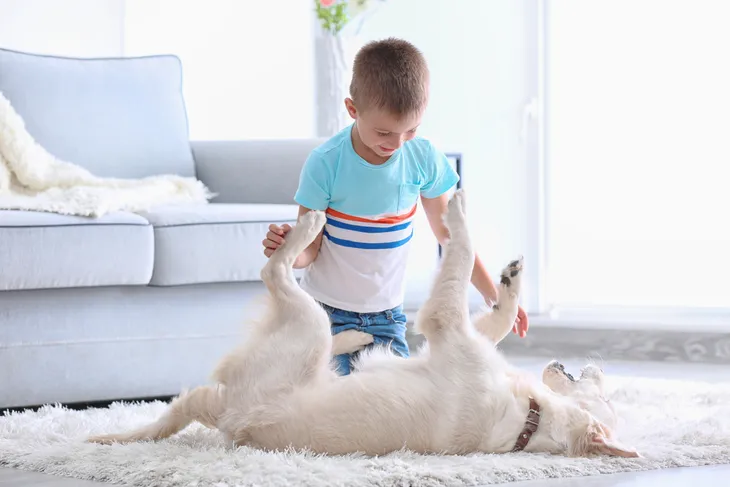When it comes to animals, we all know they can offer a special bond like no other. When it comes to people with disabilities, animals have been helping in a big way for a long time. Whether it’s a guide dog for the blind, mobility assistance dogs, or even emotional support animals — people are beginning to understand this bond more and more and just how helpful it can be.
Among these special bonds, is the role animals play on kids with autism. It’s incredible for so many reasons! When our daughters were little, we decided we wanted a pet, so we adopted a dog who was past the potty-training stage, but still young enough to grow with our children. The girls were in love with our new family member. However, I quickly realized our puppy needed a companion as well.
We eventually found a second dog to add to our family that everyone got along with well. This tiny little pup was all of five pounds, but full of energy and love. At the time, our youngest daughter was not quite 3-years-old. She would pick him up and carrying him around like a baby doll at every chance, and he absolutely loved it.
Strong Bond
While their autism diagnosis was unknown at that time, that goofy bond between my youngest daughter and the puppy has lasted until this very day. Our daughter cannot stand being away from him overnight, during school, or even a few hours out shopping. As for the dog, he seems to feel the same way. He always goes to her room, sleeps on her bed, and is sad when she is not home.
Their bond is just one example of the incredible amount of impact animals can have on kids with autism. Animals can provide companionship, friendship, and reduce anxiety. When it comes to dogs, there is substantial research on how dogs can help those with autism. There is a calming presence that dogs provide, and let’s face it, dogs are much easier to talk to than humans! There is no fear of judgment when telling your pet about your day and emotions.
Dogs Have Emotional Awareness
Have you ever noticed how your dog comes to you when you are sad or sick? Your pet learns how you behave and picks up those nonverbal clues from you. When it comes to the impact animals can have on kids with autism, communication is more comfortable because it is all nonverbal. A child does not have to tell the dog she is sad for her companion to know she needs a little extra of their love and attention.
Similarly, your child will learn how to read the nonverbal clues of their pet. Because they have a connection, there is much more reason for your child to want to learn how the dog shares emotions. By learning these clues, your child is also learning to pick up on those same nonverbal clues from other people in their lives.
Proven Benefits to Speech
Another benefit of having a dog is that there are proven benefits when it comes to speech. This applies for both adults and children with autism. Children’s speech is known to become more fluent as they are more relaxed with dogs. Adults become more prone to chatting and show their unique sense of humor.
Learning Through Play
Playing can also be a challenge for many children with autism. Learning through play has such an essential role in every child’s life, even more so for an autistic child. Dogs are some of the most playful creatures in the world, so they are the perfect companion to help increase play! Most dogs will keep wanting to play, even long after your child has run out of energy!
While many may think of dogs when thinking of the impact animals can have on kids with autism, they are not the only animals that can help. After seeing the benefit of our friends’ chickens on her autistic daughter, we decided to add a few feathered friends to our family.
Immediately, I saw our 5-year-old autistic son melt while holding the baby chicks. He was so cautious but absolutely in love. That has been the case for all three of our autistic children, as well as every child that the chickens come across!
Autistic Children and Horses
Another fantastic animal with a proven positive impact on autistic children is horses. Our daughters have equine therapy every week at a center for those with special needs. While they love learning how to ride, the benefits are much more than just the fun they have.
They have learned how to calm their bodies to calm the horse. Then, they must use both verbal and nonverbal communication to guide the horses.
 RMC42 / Shutterstock.com
RMC42 / Shutterstock.comLearn Life Skills
Learning life skills is crucial for autistic children. When it comes animals, we teach our children specific tasks that they can do with our pets. After they have mastered those skills, that skill then becomes their responsibility. For example, one child is responsible for food and water for the dogs. Another is responsible for morning feeding and checking on the chickens.
Taking the dogs for a walk is a shared responsibility, while bathing still currently falls on me. Owning a pet can foster responsibility in children, which is a highly valuable life skill. No matter which creature your family chooses, the impact animals can have on kids with autism is incredible. I could not imagine our lives without our four-legged and feathery companions!








